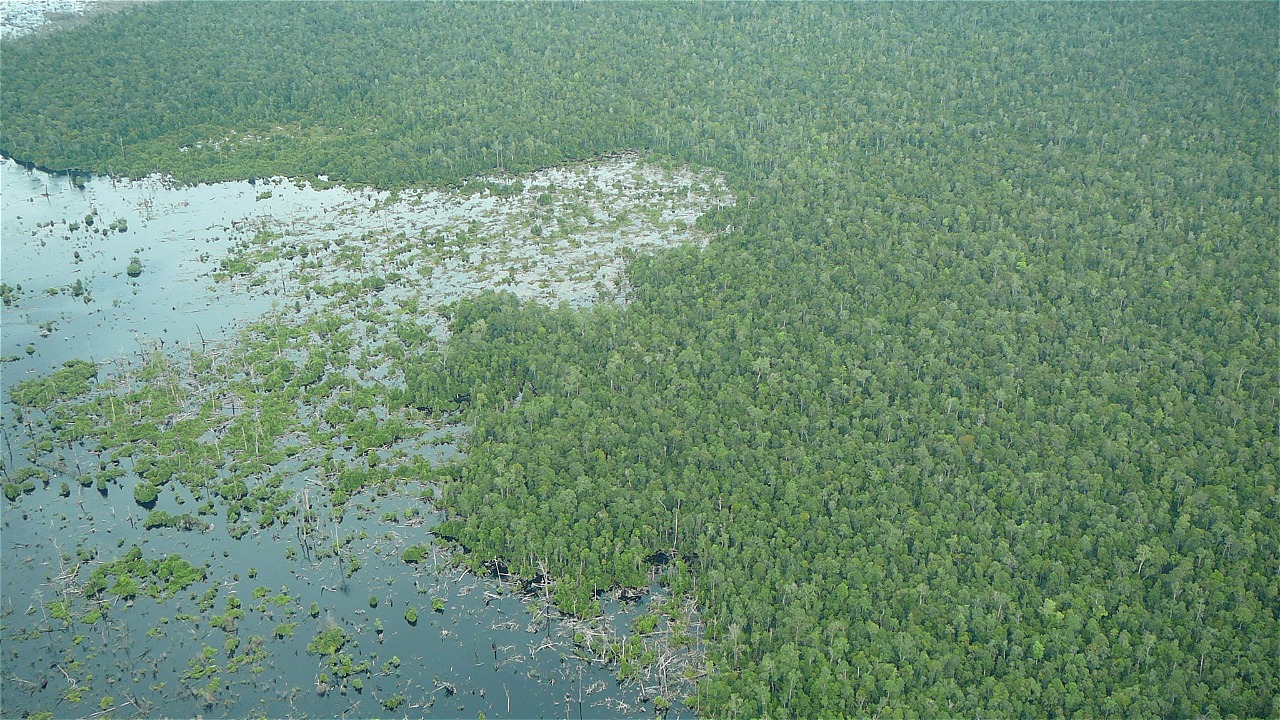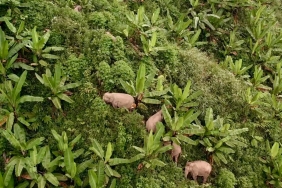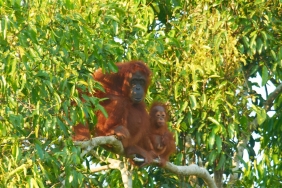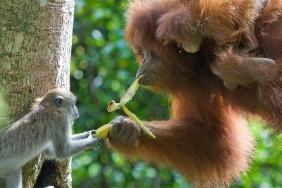#SOSSEBANGAU: CALL TO ACTION ON KALIMANTAN FOREST FIRES
By: Ciptanti Putri
It was like being struck by lightning in the middle of the day. That's how Rosenda Chandra Kasih, Site Coordinator of WWF-Indonesia's Central Kalimantan Program, felt when last September she heard the news that fires had started to appear and spread quickly, scorching reforestation land in the Sebangau National Park (TN) area managed by her team. Based on the latest monitoring, the burned area reached an area of 100.5 hectares.
"It was devastating to see the trees that were taller than my body burned down. How can I find the money to fund the repairs?" asked Sendy, who has been overseeing all critical land planting projects in the area that is home to orangutans, proboscis monkeys, sun bears, gibbons, hornbills, clouded tigers and others since 2007.
Fires are not new to the swampy peat forest. From 2007 to 2014, two long dry seasons accompanied by fires were recorded in several parts of Sebangau NP (2011 and 2014). Human activities are suspected to be the cause, such as carelessly discarded cigarette butts when fishing, making campfires, and wild boar hunting activities using bomb traps. With its hollow structure, peat is highly susceptible to burning in the dry season because it has no water in its upper layers. The condition is exacerbated by weather anomalies such as now where the Sebangau National Park area is covered by dry and hot temperatures that exceed the norm so that fires easily spread.
A number of steps were taken by Sendy and the WWF-Indonesia Central Kalimantan Program team to stop the disaster. He alerted 18 Community Fire Brigades in areas identified as high-risk fires. Led by the Sebangau National Park office and village officials, they conduct regular patrols along trails whose maps were prepared by WWF-Indonesia.
"In one patrol, it takes 2-3 days because the range is very wide.
WWF-Indonesia also built several boreholes to extinguish fires that are located far from the river. However, with limited capacity, WWF-Indonesia is only able to build 1 or 2 wells around the area of ""high-risk fires."" Ideally, there should be at least 8 boreholes in one area to ensure the water supply for the spraying pipes and the safety of the people during the fire extinguishing process.
In order to assist the fire extinguishing efforts in the Sebangau National Park reforestation land carried out by the WWF-Indonesia Central Kalimantan Program team, the Sebangau National Park Office, and the community, the WWF-Indonesia Teledonation team activated the #SOSSebangau program. In this program, active WWF-Indonesia supporters and other prospective donors will be contacted via telephone to finance the purchase of portable water pump machines, manual extinguishers, water reservoirs, communication tools for the patrol team, as well as to finance the provision of consumption for the Community Fire Brigade team during patrols.
WWF-Indonesia opened an account for people who want to immediately channel their donations for this #SOSSebangau program:
- Bank Mandiri 124-00-0520-697-5, on behalf of World Wide Fund
- Bank Central Asia 217-3012870, on behalf of YAY WWF INDONESIA
If you would like to be contacted by WWF-Indonesia Teledonation team and get more information about the program, you can send an email with your personal data, such as full name, age, WWF-Indonesia supporter membership number (if any), and contact phone number to supporter-service@wwf.or.id (please write #SOSSebangau as the title of your email).
The Sebangau National Park has a designated area of 568,700 hectares, located in the administrative areas of Palangka Raya City, Katingan Regency, and Pulang Pisau Regency in Central Kalimantan Province. The area is the last remaining peat swamp forest in Central Kalimantan; the ecosystem has been degraded after illegal exploitation of its forests, fish and minerals in the past, leaving 66,000 hectares of critical land. Reforestation efforts are urgently needed to restore the Sebangau peat swamp forest as the highest habitat for orangutans (6,000-9,000 population), as well as to restore the peatland's function as a carbon stock and water catchment area for the three surrounding administrative regions. WWF-Indonesia runs various reforestation programs in Sebangau NP, funded by corporations and individuals. Learn more about WWF-Indonesia's reforestation programs at www.mybabytree.org.





